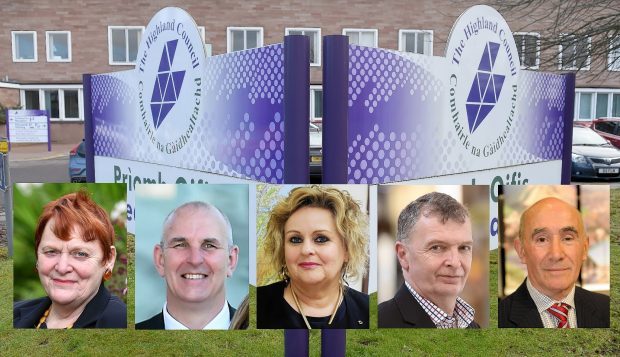All five political groups within Highland Council are engaged in talks to shape a possible coalition administration in the wake of the local authority elections.
And while the future is uncertain, the Liberal Democrats have laid down ground rules.
Their group leader Alasdair Christie said yesterday: “We will work with councillors of all parties and none where we have shared objectives and can achieve better services.
“But we will not enter a coalition, administration or pact with the SNP whose national agenda is solely focused on centralising and removing control of services from the Highlands to Edinburgh.
“[That and] placing a second independence referendum ahead of improving NHS waiting times, educational attainment, creation of investment in the Highlands, and provision of sufficient affordable housing and improving our roads.
“In addition we will not enter into a coalition, administration or pact with the Conservative Party on the council as we see first-hand the damage to Highland lives that their austerity policies have created.”
Re-elected independent group leader, Margaret Davidson, who led a minority administration after the collapse of a previous SNP, Liberal Democrat and Labour coalition, confirmed that inter-party talks had taken place.
One councillor suggested that any pact might be delayed until the outcome of next month’s general election.
Councillor Davidson, however, believed things were “likely to be much clearer by the middle to the end of the week.”
The SNP and Lib Dem groups each retained their leaders in the wake of the election. Labour’s Jimmy Gray, whose party is down to just three members, could not be contacted.
Callum Smith is leader of the new, 10-strong Conservative group on the council.
The full complement is now 28 independent, 22 SNP, 10 Tory, 10 Lib Dem, three Labour and one Green – the council’s first elected member.
Boundary changes have resulted in a slimmer local authority, down from 80 to 74 members.
SNP group leader Maxine Smith said she was delighted to have a 22-member unit returned.
She added: “Given that we’re the largest political group, we would wish to be part of the administration but negotiations are ongoing.”
The sole female Tory candidate elected in Highland, Isabelle Mackenzie in the Inverness Milburn ward, was thrilled to have gained the public’s confidence.
She said: “I’ve served on a community council and we always have a debate in our house about politics and animated chats about it. We just felt it was time to stand up and get our voice out there.”
Caithness health campaigner Nicola Sinclair, who secured a seat in the newly created Wick and East Caithness ward, said it was a “bittersweet” victory, having taken votes which contributed to the defeat of sitting member and council budget leader Bill Fernie.
He remains a close ally on the Caithness Health Action Team, opposing local NHS reforms.
Mr Fernie phoned her on Friday to offer his congratulations.
Councillor Sinclair said: “I was desperate not to let people down. I’m delighted and honoured.”
Mrs Sinclair, a 34-year-old mother of two young children, echoed the views of many in the county who predicted the SNP would lose ground. But both nationalist candidates in Caithness were successful.
Green Party councillor Pippa Hadley, a 45-year-old Co-op worker, will represent Badenoch and Strathspey.
“Terrified” is how she summed up her feelings, moments after the result announcement.
New SNP councillor for newly-formed Thurso and Northwest Caithness ward, Karl Rosie, is keeping up a family tradition albeit for a rival party.
His sister, Deirdre Mackay, was returned as a Labour councillor in East Sutherland and Edderton.
Karl Rosie, a 55-year-old grandfather, said: “My [late] father had given me his blessing. We have held pretty much the same values.
“My reason for joining the SNP was to provide a better future for current and future generations.”
